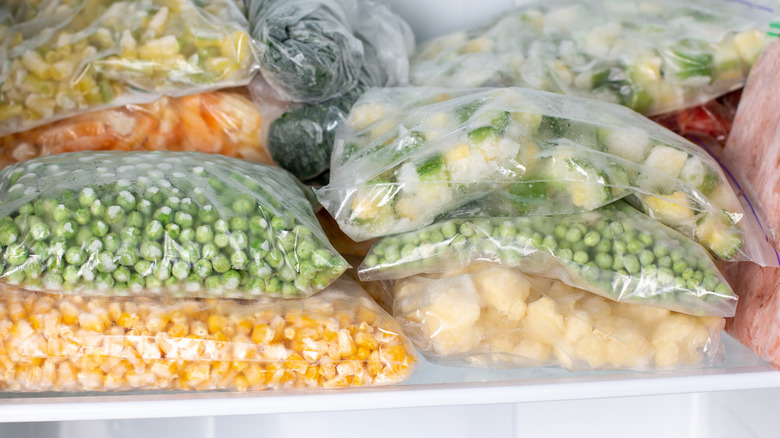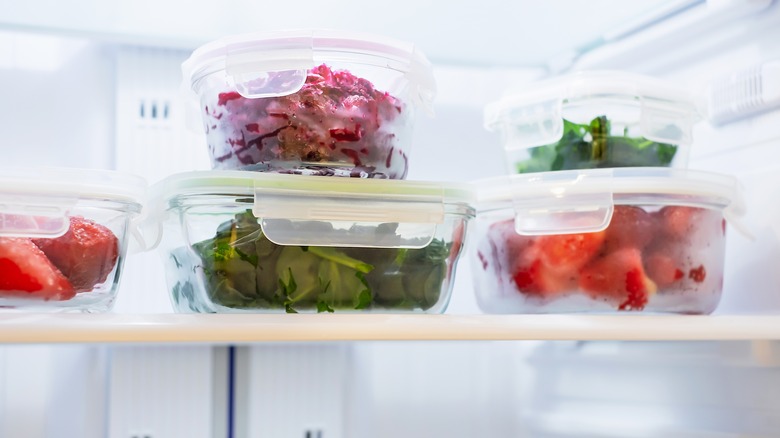The Absolute Best Way To Open Up A Bag Of Frozen Vegetables
If you haven't hopped on the frozen vegetable train yet, you're missing out. Contrary to misconceptions, frozen vegetables aren't any less nutritious than fresh ones. In fact, they might be even more nutrient-dense, according to a 2017 study published in the Journal of Food Composition and Analysis. Frozen veggies are budget-friendly, often costing significantly less than their fresh counterparts in grocery stores, and help you reduce food waste, with a much longer shelf life than quick-to-spoil produce.
While you probably shouldn't eat frozen vegetables that are more than a year old, their longevity is technically indefinite, and you can keep their quality higher for longer using a simple storage trick. Instead of tearing or cutting open the bag haphazardly and leaving the produce exposed to the cold, dry air that accelerates freezer burn, there's a better way to open bags of frozen vegetables. At the top of the bag, cut out a square shape in the center going down about one or two inches from the top, leaving at least a third of the sealed bag intact on either side of the hole. The result should look sort of like a plastic bag (only without handles cut out for carrying). Now you can tie the two sides together when you're done cooking, making sure to compress it tightly to remove excess air, effectively sealing the veggies inside and preventing freezer burn.
More frozen food tips
Maximizing your use of the freezer can be tricky, since it's typically a small space full of foods that sit there for a long time, taking up room. The threat of freezer burn, spillage, or melting looms if your items are put away haphazardly and if you're storing food for a big family or sharing your kitchen with roommates, the frustration is exacerbated. But freezing foods is the best way to prolong their edibility, making mastering your freezer a top priority.
The frozen veggie bag trick works great for any pre-packaged item that comes in a plastic bag, ensuring that the food inside is as protected and compact as possible. For foods that don't come with packaging, like leftovers, try utilizing plastic bins to organize and stack foods efficiently. It's important to keep in mind that you shouldn't freeze foods in bulk and risk overcrowding the freezer, which slows down the freezing process detrimentally.
In addition to storage hacks, there are foods you've probably never considered freezing that are super freezer-friendly. For instance, did you know you can store whole lemons in your freezer for prolonged freshness and easy zesting? Staple cooking foods with otherwise limited shelf lives like bread, herbs, and broths can also be kept in the freezer for cooking emergencies. With the right preparation and storage strategies, you can make the freezer the treasure trove of your kitchen.

